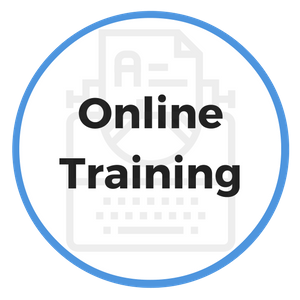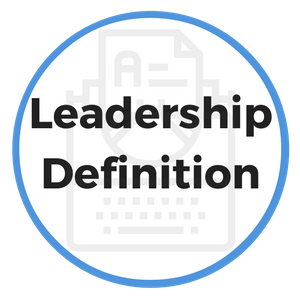- Home
- Leadership Development Articles
- Leadership Skills Training
Leadership Skills Training for Kids:
Teach, Coach, Expect
Parents can apply basic leadership skills training at home with their kids for a happier and more successful home environment.
One powerful approach parents can use to support the success of their children is a technique we call, Teach, Coach, Expect.
For example, household duties or chores assigned to your kids are similar to a job in the workplace and require a manager to take the time to Teach and Coach for competency. Only once competency is achieved can you move to the Expect phase.
Throughout our website we have talked about the importance for all managers to be hands-on teaching and coaching employees. The same is true when dealing with our kids. Developing leadership for kids starts at home,and you can't begin too early in preparing them for the expectations that life will bring.
Often a manager (or parent) can become frustrated when they learn that an assigned task is not completed on time or when completed the quality is lacking. Their instinct can be to hold the offending employee (or child) accountable. Accountability may come in the form of a verbal statement or a more formal reprimand. However, before this step is taken a leader must always first look in the mirror and ask yourself, "Have I taught this person how to do the task?" and, "Have I coached this person how to complete the task?"
If the answer is "No" to either question, then a reprimand is premature because you have not yet done your job as the leader. Therefore, the employee's failure is actually your failure and you need to take ownership of that and take steps to get the employee (or child) back on track in a positive way.
Leadership Skills Training Technique: Teach, Coach, Expect
Teach, Coach, Expect is a simple, yet powerful leadership skills training technique that works with employees as well as at home with children and young adults.
Here's a quick review of the Teach, Coach, Expect approach to leadership skills training:
"You always pass failure on your way to success."
- Mickey Rooney
- Teach - Instruct the employee/child. Typically in a classroom setting, online learning environment or one-on-one instruction. This is the introduction of discovering new information and concepts that one needs to develop a new skill or level of expertise.
- Coach - Mentor the employee/child. Coaching refers to taking the extra time to work side by side the employee/child and walking them through the new activity to ensure they fully understand what is expected of them. Only by taking this step can you truly know whether or not the individual has developed the necessary skills to complete the tasks at hand and achieve the overall goals and objectives.
- Expect - Hold the individual accountable. Now that you know the employee/child is knowledgeable and capable of achieving the tasks assigned, you can expect results without hesitation. Praise the employee/child when results are achieved. However, when performance is lacking you'll need to take corrective action to reverse any negative trends.
Note: Before ever taking corrective action, the leader/parent must first take a look into the leadership mirror. Ask yourself, "Have I taught this person properly? Have I coaching this person and prepared them to be successful in this area of performance?" If the answer is yes, then it's fair to hold the employee accountable. However, if the answer is no, then you'll need to go back and invest some more time to support their success.
Ah-Ha Moment!
Throughout our lives we have instances where things become amazingly clear. We often refer to these instances as 'Ah-ha!' moments. My wife recently shared one of these moments with me and I knew right away that many parents would be able to relate.
I asked her to share her experience because I believe it's a great example of how parents can effectively use leadership skills training tools and techniques at home.
Here is her story...
I just experienced an 'ah-ha' moment while scrubbing the tub in the kids’ bathroom,
fuming over our teenage daughter’s lack of basic housekeeping skills.
Expecting company, I was busy directing traffic at home in an effort to get the house ready for guests to arrive. I didn't ask anyone else to clean the bathroom because I have pretty high expectations and I knew it would be faster if I took on that particular task myself.
Unfortunately, we were running way behind and I quickly found myself wishing I could delegate the task to my oldest daughter with confidence that the bathroom would be company-ready.
In our family We are typically “all hands on deck” with chores and housecleaning, but when it comes time for deep cleaning, I find myself doing the bulk of the work. The kids simply do not have the attention to detail that I would demand in order to pass inspection.
More times than not, when the kids’ job does not pass parental inspection, this can quickly lead to a downward spiral child-parent relations, ending in frustration for all parties involved.
Sound familiar?
My “ah-ha” moment while scrubbing the tub came right after I asked myself one simple question out of sheer frustration. “Had I taken the time to clean alongside my daughter, teaching her and coaching her, so she would know what needed to be done and how to do it?”
I knew the simple answer immediately... "No. I had not."
I was thoroughly disappointed in myself. With a busy household of five, we had taken the 'divide and conquer' approach. Sending the kids off to complete their assigned tasks, assuming they knew what to do and how to do it. They had seen us doing the same household tasks, like vacuuming, loading and unloading the dishwasher, folding laundry, for years - so no need to spell it out, right? Wrong.
I can’t believe that I never thought to apply the Teach, Coach, Expect technique to train our kids for household jobs. This leadership skills training approach is simple and it works!
We are pleased to report that after investing some quality coaching time our daughter is now up to the task of cleaning the bathroom to the 'company-ready' standard. After investing the time to clean side by side, clearly defining what 'clean' actually means and showing her how to clean, my wife feels much more at ease when delegating more complex household chores - all thanks to some basic leadership skills training.
One additional benefit that has come from this experience is that our daughter now has a higher level of expectation for herself. Her definition of 'clean' has been heightened, and this is carrying through to other areas that she is responsible for.





